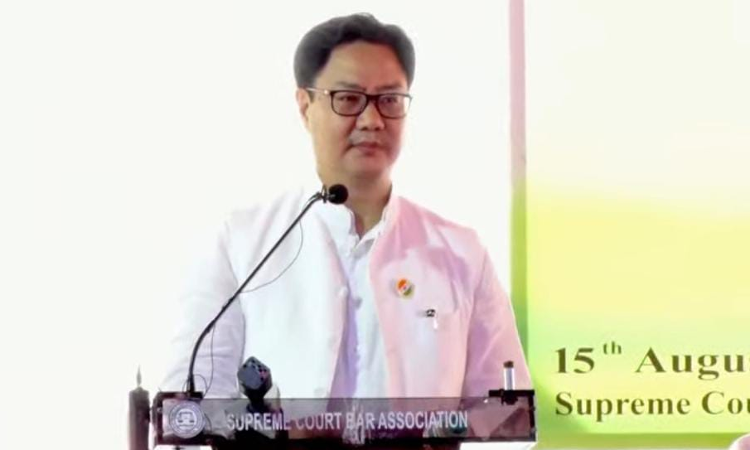No Country's Judiciary Has Judges' Workload Like India : Law Minister Kiren Rijiju
Padmakshi Sharma
15 Aug 2022 2:35 PM IST

Next Story
15 Aug 2022 2:35 PM IST
The Hon'ble Union Minister for Law & Justice, Mr. Kiren Rijiju was invited as the 'Guest of Honour' at the 75th Independence Day celebrations organised by the SCBA in the Supreme Court Complex. While stating that no country could face the unique set of problems which India faced, he said that while it was easy to pass sweeping comments on the working of the State, it was not easy to hold...
